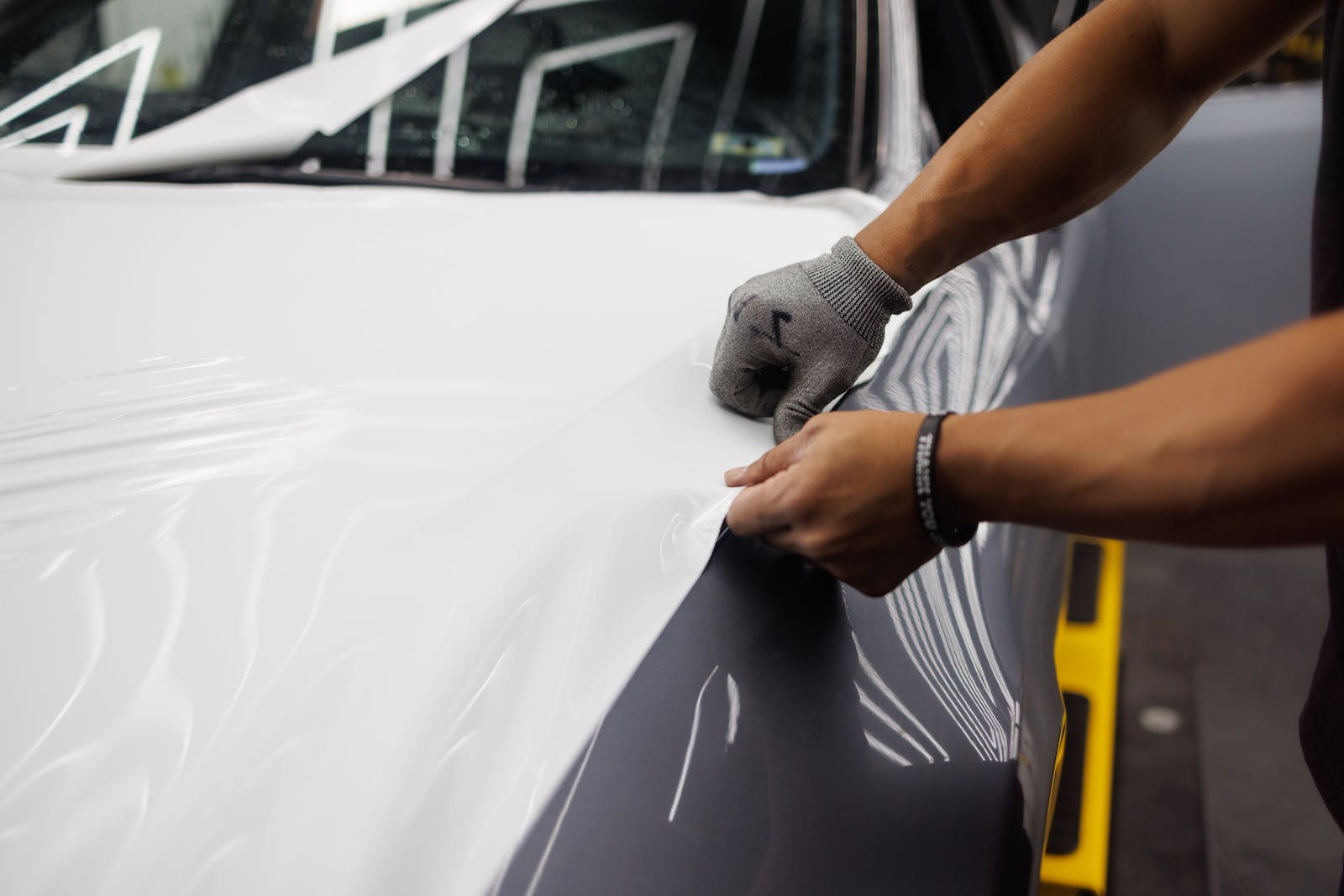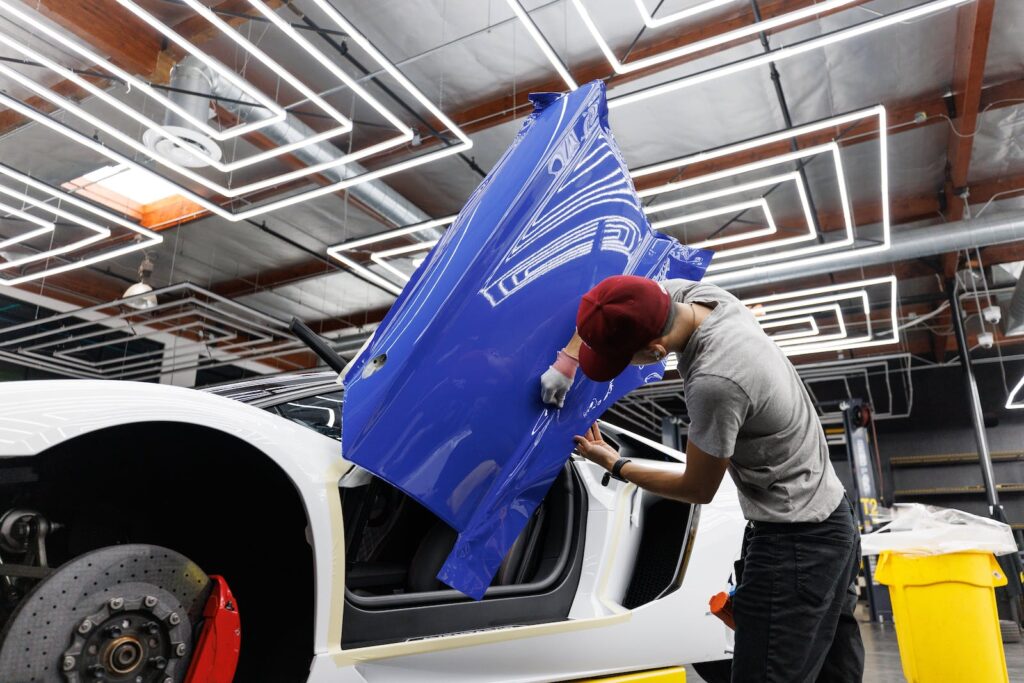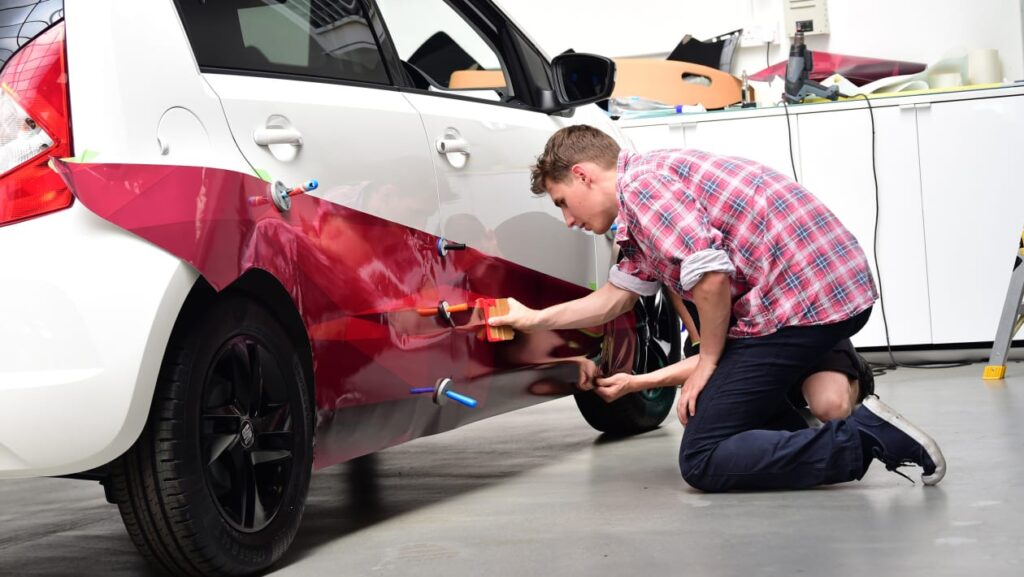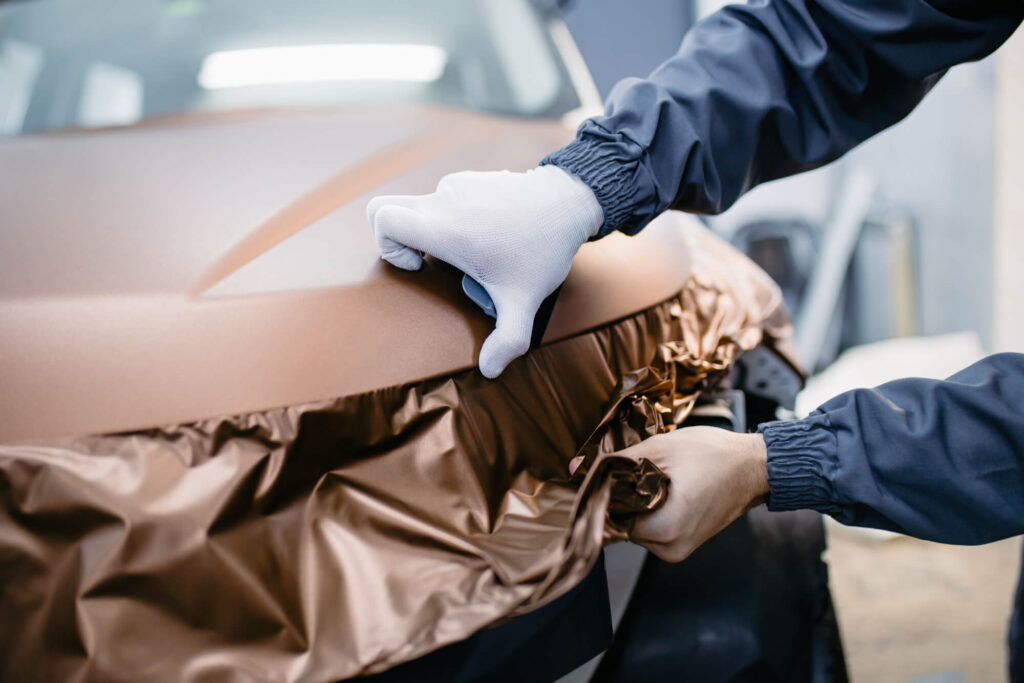
Car wrapping has become a popular medium for businesses of all sizes to advertise their products and services. With the growth of the gig economy and the rise in entrepreneurship, the need to stand out and make a lasting impression on potential customers is more critical than ever.
Car wrapping offers an effective and cost-efficient solution to this challenge, providing businesses with a mobile billboard that showcases their brand wherever they go.
The evolution of car wrapping can be traced back to the 1990s when German taxi companies started using adhesive vinyl to make their vehicles more noticeable. Fast forward to today, businesses worldwide are exploiting this advertising medium to promote their brands and reach a wider audience.
The impact of car wrapping on business visibility and promotion is enormous. As per a recent survey, a single vehicle wrap can generate between 30,000 to 70,000 daily impressions. This level of exposure can greatly increase brand recognition and boost sales.
What is Car Wrapping: A Brief Overview

Car wrapping refers to the process of applying large sheets of vinyl film to a vehicle’s body. The primary purpose of a car wrap is to change the car’s appearance by adding designs, logos, or promotional messages.
Vinyl is the material of choice for car wrapping due to its durability and flexibility. It comes in a variety of finishes, including matte, satin, gloss, and metallic, allowing businesses to fully customize their vehicle’s look to reflect their brand.
Furthermore, vinyl wraps protect the original paintwork from UV damage, minor scratches, and chips, which can be a significant advantage for businesses using leased vehicles.
Exploring DIY Car Wrapping: Tools, Time, and Skill Level
The DIY approach to car wrapping can seem appealing to some business owners. Not only does it offer potential cost savings, but it also provides a degree of flexibility and control that may not be available when outsourcing the task to a professional.
To wrap a car yourself, you’ll need several tools, including a squeegee, heat gun, razor, and quality adhesive vinyl wrap. Preparation is key to a successful wrap job, so you’ll need to thoroughly clean and dry the vehicle beforehand.
In terms of time commitment, it varies based on the size of the vehicle and the complexity of the design. However, it’s safe to say that wrapping a car is a time-consuming task. For someone with no prior experience, it could take up to a couple of days to complete.
As for the skill level, wrapping a car is not an easy task. It requires patience, precision, and an eye for detail. Even with a comprehensive tutorial or guide, applying a wrap without any wrinkles, bubbles, or creases can be challenging.
Advantages and Disadvantages of DIY Car Wrapping
When done right, DIY car wrapping can save you a significant amount of money. Professional car wrapping services can cost anywhere from $2,000 to $5,000 depending on the size of the vehicle and the complexity of the wrap design. In contrast, the materials for a DIY wrap job can cost less than $1,000.
Moreover, DIY wrapping allows for unlimited customization. You have the freedom to choose any wrap design or color you want, without having to consider the preferences or limitations of a professional installer.
However, DIY car wrapping is not without its pitfalls. One of the main disadvantages is the potential for errors. Car wrapping requires a high degree of skill, and mistakes can be costly.
Incorrectly applied commercial vehicle wraps can result in wrinkles, bubbles, or peeling, which can detract from the professional image you want to project.
Exploring Professional Car Wrapping: Process, Expertise, and Results
Professional car wrapping is a service provided by trained experts who have the right tools, knowledge, and environment to wrap vehicles effectively and efficiently.
The process starts with a consultation where the design, color, and finish are decided. The vehicle is then thoroughly cleaned and prepped to ensure no dust or debris interferes with the wrap’s adherence. The application of the wrap is precise, taking into account the vehicle’s complex shapes and contours.
The expertise involved in professional wrapping ensures a high-quality finish. Professionals have the training and experience to apply the wrap smoothly and evenly, resulting in a finish that often looks like a factory paint job.
Moreover, the durability of a professionally applied wrap can outlast a DIY job, ensuring your business’s branding remains vibrant and impactful for longer.
Advantages and Disadvantages of Professional Car Wrapping
Opting for a professional service ensures a high-quality, durable finish. Time efficiency is another advantage – a professional can usually complete a wrap in one to two days, allowing you to get your mobile advertisement on the road sooner.
Many professional wrappers also offer warranty protection, adding an extra layer of security for your investment.
The primary downside is cost. Professional car wrapping services can be expensive, potentially making them less accessible for smaller businesses or those with tight budgets. Additionally, depending on the provider, there might be less scope for customization.
Cost-Benefit Analysis: DIY vs. Professional Car Wrapping

While DIY wrapping offers initial savings, the long-term durability, quality, and professional finish of a professional wrap can provide a higher return on investment, as the wrap could last longer and promote a more professional image.
On the other hand, if a business has a tight budget, has someone skilled enough, and the wrap is not expected to last long (e.g., for a short-term promotion), a DIY wrap might make more sense.
Factors to Consider: Business Size, Budget, and Target Audience
The size of your business, your budget, and your target audience should all be considered when choosing between DIY and professional car wrapping.
Large businesses might prefer professional wrapping for uniformity across a fleet of vehicles. Smaller businesses or startups with limited budgets may opt for the DIY route.
However, if your target audience values professionalism and quality, a professional wrap might be the better choice, even for a small business.
Bottom Line

This wraps up the overview of DIY versus professional car wrapping for your business. Making the right choice involves considering a variety of factors, including cost, time, skill level, and the image you want to portray to potential customers.
While professional wrapping tends to offer superior results, DIY wrapping might be an adequate solution for some businesses. Ultimately, the choice comes down to what best serves your business needs and goals.




